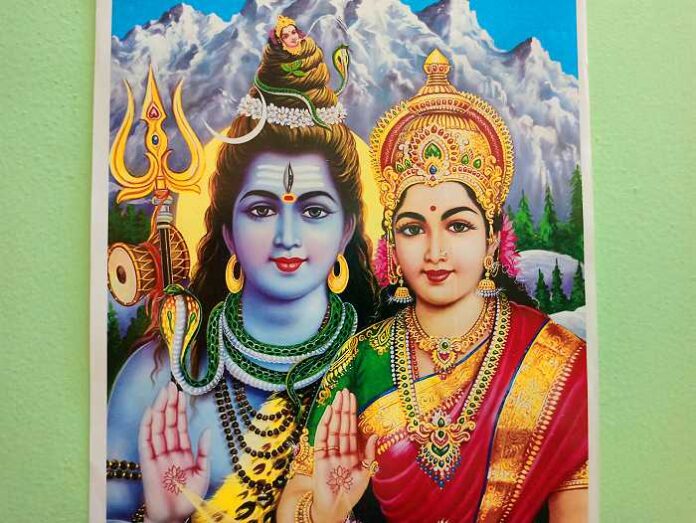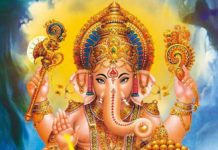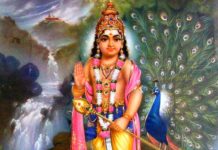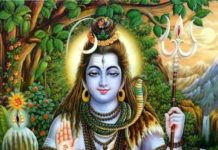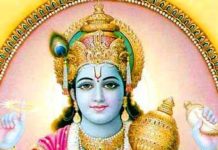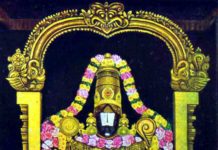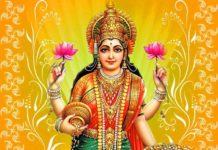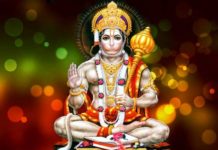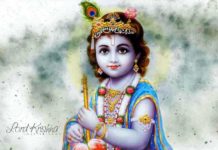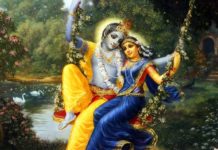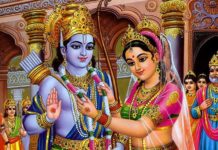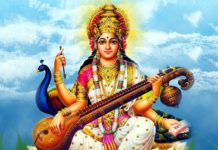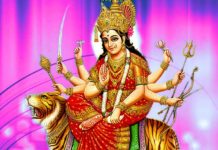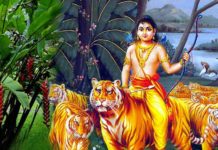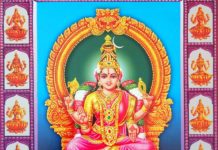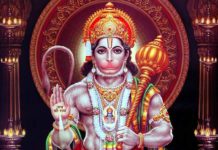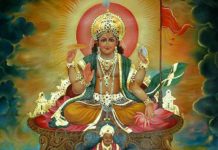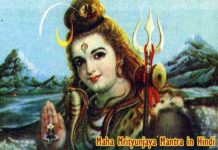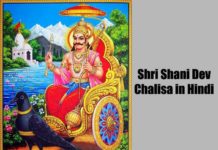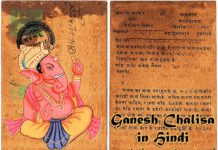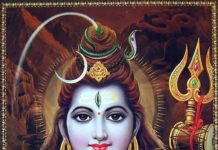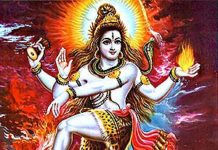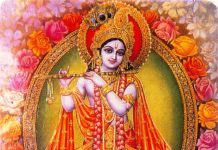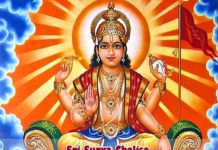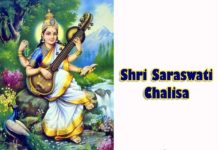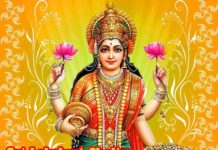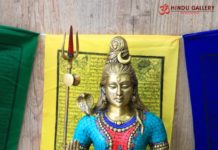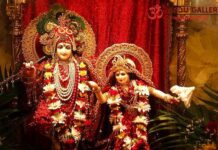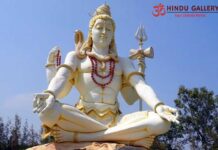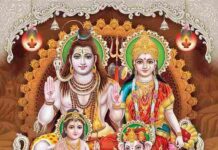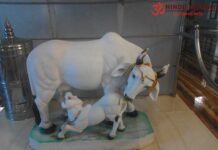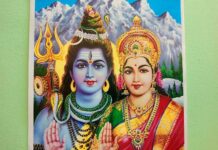Karva Chauth is the festival observed by the married women for the safety, welfare and long life of their husbands. The festival is predominantly celebrated by North Indians. Even unmarried women observe this festival for their fiancées. The women observe fasting from sunrise to moonrise.
The festival occurs on the Krishna Paksha Chathurthi of Ashwin month as per Amantha and Karthik month as per Purnimantha Calendars. The festival occurs prior to Deepavali.
At some places, mother earth is worshipped for her fertility in yielding crops which alleviate starvation.
For the Year 2023, Karva Chauth occurs on Wednesday, 1st November 2023. The exact duration of the Chathurthi Tithi has to be ascertained from the respective regional calendars.
Legends
There are a few legends pertaining to the observation of this festival. A few of them are narrated here. The core of the festival is the fasting by women for their husbands. It is even more significant when the husbands had to be separated from their wives due to the nature of their work.
Srimathi Karwa
Karwa was very much devoted to her husband. One day, when she was bathing with him at a river, a crocodile had caught him. Sri Yama had come there to take away her husband. Karwa was furious. She demanded that he should send the crocodile to hell and relieve her husband instantly. Sri Yama refused to accept her dictate. She then told him that she would curse him.
Sri Yama was wary of her curses because she was a pathi-vrat. So, he immediately released her husband from the clutches of the death. It is believed that this incident had occurred on the Krishna Paksha Chathurthi of Karthika month. The story is similar to the story of Sathyavan and Savithri.
Hence, in memory of Srimathi Karwa, this festival is observed.
Veeravati
Veeravati was the doted sister of seven brothers. She was married to a King. He had come to her maiden home to celebrate Karwa Chauth. As is the custom, she had observed the nirjal vrat (not even drinking water) from sunrise and was waiting for the moonrise to complete her fasting.
While she was fasting, due to some illness, she was suffering from thirst and hunger. Her brothers could not bear her ordeal. They knew that their sister would not end the fast unless she sights the moon. Since the season was winter, it was getting dark soon.
In a bid to end her misery, they had arranged a lighting arrangement with a mirror which reflected as the moon near a pipal tree. They showed her the light and told that the moon had arisen.
She had believed it and decided to end her fast. She was not aware that the real moon had not arisen so far. She took the first morsel of food. She had uncontrollable sneeze. When she took the second morsel, she found fallen hair in it. She was feeling some bad vibes. When she was about to have the third morsel, she had heard the news that her husband was no more.
She immediately had run away to reach her husband’s place. She was crying inconsolably. On the way, she was interrupted by Sri Parvathi Devi. Sri Devi had asked Veeravati as to why she was running and crying.
Veeravati had narrated the incidents. Sri Parvathi Devi had told her that only the seven brothers had tricked her to break her fast. Sri Devi had cut her little finger and gave the blood droplets to Veeravati and asked her to sprinkle it on her dead husband.
Veeravati ran to her husband with the droplets and revived her husband. She then had observed the Vrat with complete devotion and lived with her husband happily.
Maha Bharatha
During the vanvas period of Pandavas, Arjun was away from the camp for a few days. Due to the absence of Arjun, there were lots of obstacles and difficulties in the Pandava camp.
Hence, Draupathi, the wife of Pandavas had asked Sri Krishna for a solution. Sri Krishna had narrated the story of Veeravati. He then had advised Draupathi to observe the Karva Chauth Vrat for the alleviation of their problems.
Draupathi had followed the Vrat and the troubles faced by Pandavas had come down.
Rituals
Karwa means ‘’wheat’’. The festival also coincides with the sowing of wheat. Women keep wheat grains in pots and pray for a good harvest of wheat. The wheat grains are then sown.
Literally, Karva also means ‘’pot’’. It is mostly made of earthen material. The rituals include exchange of gifts and goodies filled up in Karva pots. The festival also marks the celebration of comradery and friendship amongst women, especially for a new bride with the other female members of her husband’s family.
The sequence of the rituals of Karva Chauth is narrated below:
Karwa Purchases
Women buy the earthen parts in advance. They paint and decorate the pots on the outside. Inside the pot, they put new bangles, ribbons, sindhur, turmeric, kajal, small new clothes, sweets, candies and other small goodies. The gift set is in total referred to as Karwa.
They also buy in advance ornaments, puja items and the earthen lamps. The lamps are called as karva lamps. Apart from this, a Puja thali with decorations on the outer surface and mehendi are also bought. A decorated new sieve is also kept ready.
The parents send gifts and sweets to their married daughters for Karva Chauth.
Pre-fast intake
In some regions, the elderly lady of the house, mostly mother-in-law, cooks the feast-like meal before sun-rise. It is called Sergi. It consists of fruits, sweets and dry nuts. This is considered as the token of gratitude towards her daughter-in-law who is fasting for her son.
In some regions, women drink fenia, a healthy drink before sunrise on the festival day. The drink will give sustenance to the fasting ladies till moon-rise time.
Fasting
Women wear traditional dresses and observe fasting through out the day by foregoing even water. They apply mehendi to each other. They do not do any household work during fasting. They go around the place visiting friends and relatives.
The women then exchange the Karwa pots as gifts to each other. At some places, the gifts are exchanged seven times amongst women as a ritual.
Wheat sowing is also celebrated as the community festival.
Evening
The entrance of the house and the Puja place are decked up with colorful Rangoli. Prior to the expected time of moon-rise, the women in the neighborhood assemble at a place. They get traditionally attired in the dresses made of auspicious colors such as orange, red, gold etc., They wear jewelry also.
They sit around in circles holding the decorated plates. The plates are decorated with shining cloth on the outside. Inside the plate rice, sweets, dry fruits, fenia, kheer, other sweet dishes and lamp are kept. At some places, an idol of Sri Parvathi Devi is made of clay and kept in the plate. The practice of lighting lamp in the plate is also followed. The plates are sent around and exchanged.
The ladies then chant Slokas and Prayers in praise of Sri Gowri Devi. They sincerely pray to Sri Parvathi Devi for the safety, welfare and the long life of their husbands.
Then the elderly lady in the group would narrate the story of Karva Chauth and the others listen attentively keeping the plates in their hands.
After the story, the following song is sung. The song denotes the significance of the Karva Chauth festival and about the activities which are not to be followed during the festival. While the song is sung, the ladies send around the plates for seven rounds.
Song for the first six rounds
veero kudiyae karvaada,
sarv suhagan karvaada,
a katti naa ateri naa,
kumbh chrakhra feri naa,
gwand pair payeen naa,
sui che dhaga payeen naa
ruthda maniyen naa,
suthra jagayeen naa,
bhain pyari veeran,
chan chade te pani peena
ve veero kuriye karvaara,
ve sarv suhagan karvaara.
For the seventh round, the following is recited.
veero kudiye karvaada,
sarv suhagan karvaada,
aye katti nayaa teri nee,
kumbh chrakhra feri bhee,
aar pair payeen bhee,
ruthda maniyen bhee,
suthra jagayeen bhee,
ve veero kuriyae karvaara,
ve sarv suhagan karvaara.
Moon-rise
At the time of moon-rise, women lit the diyas around the house. They fill the karva clay pot with water, milk, coins, precious stones etc., and offer Arghya to the moon chanting mantras.
The women then sight the moon through the decorated sieve and look at their husbands through the sieve.
The husbands then give a sip of water to their wives and feed them the first morsel. Thus, the fast is broken. The husbands also shower gifts to their wives on this day.
To sum up, the festival of Karva Chauth strengthens the family and community bonding.


